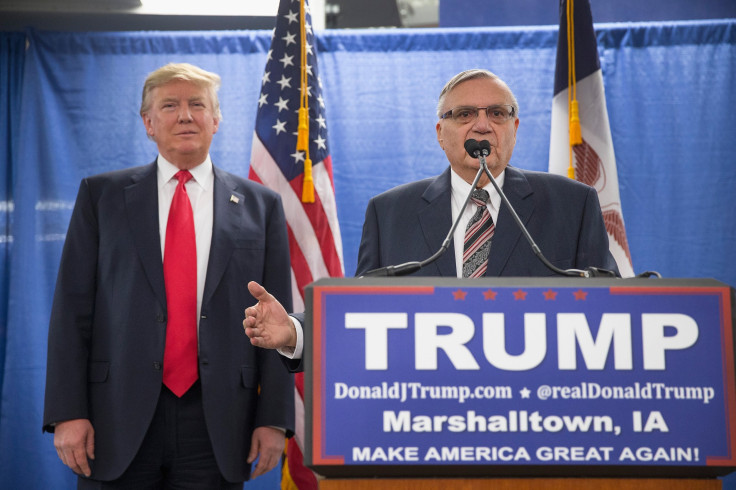Can Courts Declare Joe Arpaio's Presidential Pardon By Donald Trump Unconstitutional?

When former Maricopa County Sheriff Joe Arpaio was granted the presidential pardon on Aug 25, by President Donald Trump, people who were unhappy with the decision were under the impression that such a pardon was absolute and could not be overturned. A group of former Obama administration lawyers believes that they have found a loophole through which can not only Arpaio’s pardon be revoked, but he can be sentenced to prison time.
Arpaio was convicted of criminal contempt on July 31, 2017, for “flagrant disregard” of a 2011 court order, which demanded that he cease racial profiling of immigrants because he was violating the Fourth Amendment. While Arpaio was awaiting sentencing for his wrongdoing, Trump announced that he will be granting the former sheriff a presidential pardon, according to Truth Dig.
"Throughout his time as sheriff, Arpaio continued his life's work of protecting the public from the scourges of crime and illegal immigration," a statement from the White House read at the time. "Sheriff Joe Arpaio is now 85 years old, and after more than 50 years of admirable service to our nation, he is (a) worthy candidate for a Presidential pardon."
Following the pardon, Arpaio immediately moved to have his conviction thrown out. Judge Susan Bolton, who had convicted him before he was granted presidential pardon, has scheduled a hearing on Oct. 4 to determine if Arpaio’s criminal record can be dismissed. The Protect Democracy Project (PDP) has submitted an amicus brief, calling for Judge Bolton to find Trump’s pardon invalid because it is unconstitutional. They claim that Arpaio has violated the Fifth Amendment and hence, should be sentenced for his actions.

According to Cornell Law, the Fifth Amendment states: "No person shall be held to answer for a capital, or otherwise infamous crime, unless on a presentment or indictment of a grand jury, except in cases arising in the land or naval forces, or in the militia, when in actual service in time of war or public danger; nor shall any person be subject for the same offense to be twice put in jeopardy of life or limb; nor shall be compelled in any criminal case to be a witness against himself, nor be deprived of life, liberty, or property, without due process of law; nor shall private property be taken for public use, without just compensation.”
PDP’s brief stated that when the president granted Arpaio the pardon, it was in violation of the "Due Process Clause," as stated in the Fourteenth Amendment of the constitution.
"Due process is violated if the President can eviscerate a court’s ability to ensure compliance with the law by those who wrong the rights of private parties," PDP’s amicus stated. "And as the Supreme Court has explained, 'the Due Process Clause was intended to prevent government officials from abusing their power, or employing it as an instrument of oppression'."
"While the President’s pardon power is broad, it is not unbounded. Like other prerogatives assigned to the Executive Branch, the pardon power cannot be read to negate other provisions of the Constitution," it added.
Another brief filed by Erwin Chemerinsky, constitutional law scholar and dean of the UC Berkeley Law School; Michael Tigar, a prominent attorney and retired law professor; and human rights lawyer Jane Tigar, argued along similar lines as PDP’s amicus brief. In their brief, the three noted that the presidential pardon extended to felons who have committed “offenses against the United States” and Arpaio’s crimes did not qualify as an “offense,” hence the pardon should be considered null and void.
The Department of Justice has stood in support of the presidential pardon. It has also said that presidential pardon power “simply closes the judicial door” barring some “constitutional infirmity,” an exception that the briefs look to build on. However, for the briefs to be taken under consideration in Arpaio’s legal battle, the same have to be admissible in the court, a decision that Judge Bolton has yet to make, Truth Dig reported.
Arpaio’s lawyers are already rallying against the briefs to be presented during the upcoming hearing, stating that their client would feel burdened and “outnumbered” if such documents were admitted into evidence.
© Copyright IBTimes 2024. All rights reserved.






















